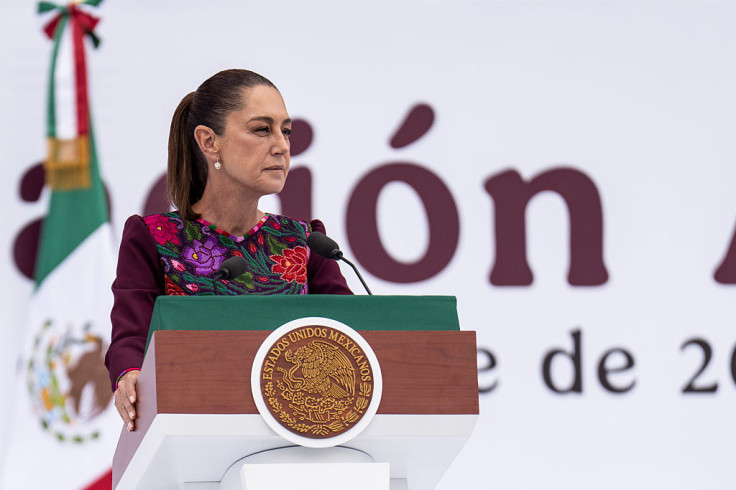
Mexican President Claudia Sheinbaum said on Friday that a U.S. military intervention in the country is "ruled out," highlighting an "agreement" between the countries.
Sheinbaum said during her daily press conference that the agreement "guarantees the sovereignty" of Mexico "even if there are some political figures in the country asking" for a U.S. intervention.
The claim comes a day after Secretary of State Marco Rubio rejected the possibility of unilaterally sending troops into the country or carrying out a strike, a statement that stood in contrast with a report from last week claiming such a scenario could take place.
"We're not going to take unilateral action and send American forces into Mexico. But we can help them with equipment, training, intelligence sharing. They have to ask for it," Rubio told press.
The report in question claimed that the Trump administration is drafting plans to send U.S. troops and intelligence agents into Mexico to target cartels.
Concretely, NBC News detailed that the planning is in its early stages but a final decision has not been made. And, if it would, it wouldn't be imminent. However, the early stages of training for the potential mission have begun.
The troops, the outlet added, would operate under the authority of the U.S. intelligence community, known as Title 50 status.
In another passage of the story, NBC News claimed that U.S. troops in the country would largely resort to drone strikes to target drug labs and top cartel operatives. The use of drones would require U.S. troops to operate them on Mexican soil.
Mexican President Claudia Sheinbaum has repeatedly rejected any possibility against it happening, claiming that the people are "united against any interference." Speaking during her daily press conference, Sheinbaum said no Mexican, beyond some exceptions, "want an intervention."
Rubio, however, said in another passage of his contact with press that transnational cartels are a formidable threat that needs to be addressed. "No one is discussing enough the rise of these transnational terrorist organizations. Just because they are not ideologically driven it doesn't mean that they are not terrorists," he said.
"They possess more weapons, better training, better intelligence, and more capabilities than nation states. in Ecuador they are threatening the Ecuadorean state. In Mexico, there are areas run by and governed by these cartels, more powerful than local law enforcement or even the national forces. these are a concern throughout the hemisphere," he added.
© 2025 Latin Times. All rights reserved. Do not reproduce without permission.





